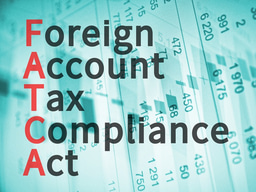Sending US Employees Abroad? Here’s What You Need to Know About Expatriate Tax Compliance

This has implications for US employees sent abroad on work assignments, who have to comply with both the US tax system as well as that in the country that they move to.
It may also affect expats’ salary packages, and so their decision to accept an assignment abroad. With an awareness of the ins and outs of expatriate employee tax strategy and compliance however, global mobility managers can better create attractive packages and understand their employees’ possible concerns.
Exemptions for expats
Expats are able to claim one or more IRS exemptions when they file their US tax return to reduce their US tax liability - often to zero. These include the Foreign Earned Income Exclusion, which allows expats to exclude up to around $100,000 of their income from US tax, the Foreign Housing Exclusion, which allows them to exclude a proportion of foreign housing rental expenses, and the Foreign Tax Credit, which offers a $1 tax credit for every dollar of tax paid abroad.
Which exemption is best to claim depends on a number of factors, including expats’ salary as well as which country they are living in. It’s also important to ensure expats meet certain criteria to be able to claim them, meaning specialist tax advice is crucial in minimizing expats’ US tax liability.
Other US filing requirements
Expats who have over $10,000 in total in foreign bank or investment accounts at any time during the year are required to file an FBAR (Foreign Bank Account Report). This will affect many expats who open a bank account abroad during their foreign posting. Penalties for not filing FBARs are steep, so it’s important not to neglect this obligation.
Another filing requirement that affects many Americans who are working abroad on a fixed-term contract is state income tax filing. While every state has its own rules, many states stipulate that if someone is planning to return to live in the state in the future, that they continue filing state taxes.
Equalization
Many firms who send US employees overseas run a tax equalization program, which means that expats who will be paying foreign taxes at a higher tax rate than if they were staying in the US by their host country are compensated the difference. As such, a calculation of the two tax liabilities is necessary for many expat employees working for US firms.
Social Security
The US has a series of treaties with a number of other countries called Totalization Agreements that stipulate that if an American is working overseas for typically less than 3-5 years (depending on the country), they will continue paying US social security contributions rather than pay them to their host country.
Tax Treaties
While the US has a lot of tax treaties, unfortunately they typically benefit foreigners working in America more than Americans working abroad. The exception is for Americans working overseas in a research or development role (also students and teachers), who can claim provisions in many tax treaties to reduce their US income tax liability.
Foreign country compliance
Finally, it’s imperative that American firms sending employees overseas ensure that their employees register and comply with local tax laws in their destination country, as well as filing US taxes during their assignment. This typically involves finding a reputable and trustworthy local accountant.
Bright!Tax (brighttax.com) is a leading provider of US expat tax services, and was recently named Expat Tax Provider of the Year at the 2017 FEM EMMA awards in Denver. Bright!Tax provides a full range of employee tax compliance services. If you have any questions regarding taxes for US expat employees, don't hesitate to get in touch and we'll be happy to help.





Please sign in or register for FREE
Sign in OR sign up to become a registered The Forum for Expatriate Management website user
Subscribe here